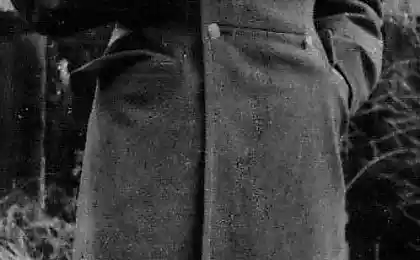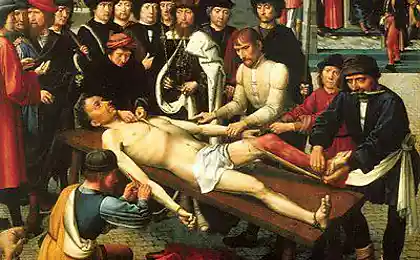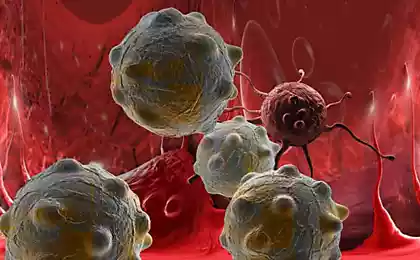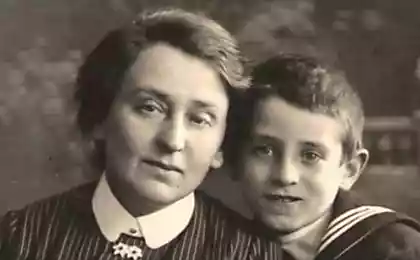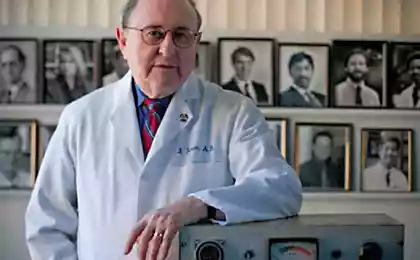134
“I will never forget how one day, on a call, our brigade came to an elderly priest who had a heart attack.”
How can a regular ambulance worker talk about humaneness? What could he possibly know about that? Turns out a lot. An example of this is the story of doctor Georgy Egorov.
Every day he sees people who are on the thin line between this and the other world. His job is to keep them there. But his interest is to understand how they feel in the struggle for life and to understand why people behave so differently at the last minute.
The priest Konstantin Kobelev once expressed this idea clearly: “When you notice that you have hurt a person in his movement towards God, this is the most painful experience.” A person may be disappointed in faith and in life through my fault.”

I will never forget how one day, on a call, our brigade came to an elderly priest who had a heart attack. He was lying on the bed in a dark blue cloth with a small cross in his hands. Objective data spoke of cardiogenic shock. Pressure is extremely low. The patient was pale, with cold sticky sweat, severe pain. At the same time, outwardly, he is not just calm, but absolutely calm and unperturbed.”

DepositPhotos: And in that tranquility there was no stretch, no falsehood. Not enough. I was struck by the first question he asked. He said, "A lot of challenges?" You probably haven't had lunch yet? And he said to his wife, “Masha, bring them something to eat.” Then, while we were taking a cardiogram, injecting drugs, putting an IV, calling a specialized intensive care team, he wondered where we lived, how long we were getting to work. I asked in a weak voice how many children we have with the paramedic and how old they are.”

DepositPhotos: He was worried about us, he was interested in us, without showing a drop of fear, while we carried out our manipulations, trying to alleviate his suffering. He saw our anxious faces, his wife crying, heard the word “heart attack” sounded when a specialized brigade was called. He knew what was happening to him. I was shocked by such composure.”
"In five minutes he was gone."
“A strange feeling that has never left me to this day caused this death in me. Because most of the time, it's not like that. Fear paralyzes the will of the sick. They think only about themselves and their condition, listen to changes in the body, to the last breath cling to the slightest opportunity to live. Anything but live. What is the meaning of life? Do they see?

DepositPhotos
In the apartments, where there is no place for icons and crosses, but there is a plasma panel in the whole wall, where in the front they ask you to wear cellophane panties, despite the serious condition of the patient, in general, “last minute tantrums” are played out. With moaning, throwing around the bed, grabbing hands, looking into the eyes, incessantly asking about his situation and his prognosis in order to catch in the doctor’s glance, his voice, words at least some ghostly hope for a miracle of healing.

DepositPhotos
Such patients, before falling into an unconscious, pre-agonal state, simply “overshadow” relatives and others with their fear. Doctors feel exhausted after such an unfortunate outcome. But not because they were unable to fully assist and save the patient. It is a desolation and a loss to feel that death here has conquered man.”

DepositPhotos
By the way, exactly the same “defeated” by fear patients are found where all the walls are hung with icons, the tables are littered with religious literature, lamps shimmer everywhere, and patients instead of prescribed medicines drink only holy water, many liters of which in different containers can be seen everywhere in the apartment.
“But after the death of that priest, there is still, strangely enough, a feeling of quiet joy in me. There, death did not prevail. And when I “scroll” in the memory of 2-3 similar cases from my practice, the question arises: “Death, where is your sting?”

DepositPhotos Comes out, no icons, no candles, no holy water - no panacea. The presence of all this in the environment of a person does not guarantee his salvation.
His salvation comes only with an understanding of the true nature of things and its acceptance. I think that's what a simple ambulance worker wanted to convey. What do you think?
Every day he sees people who are on the thin line between this and the other world. His job is to keep them there. But his interest is to understand how they feel in the struggle for life and to understand why people behave so differently at the last minute.
The priest Konstantin Kobelev once expressed this idea clearly: “When you notice that you have hurt a person in his movement towards God, this is the most painful experience.” A person may be disappointed in faith and in life through my fault.”

I will never forget how one day, on a call, our brigade came to an elderly priest who had a heart attack. He was lying on the bed in a dark blue cloth with a small cross in his hands. Objective data spoke of cardiogenic shock. Pressure is extremely low. The patient was pale, with cold sticky sweat, severe pain. At the same time, outwardly, he is not just calm, but absolutely calm and unperturbed.”

DepositPhotos: And in that tranquility there was no stretch, no falsehood. Not enough. I was struck by the first question he asked. He said, "A lot of challenges?" You probably haven't had lunch yet? And he said to his wife, “Masha, bring them something to eat.” Then, while we were taking a cardiogram, injecting drugs, putting an IV, calling a specialized intensive care team, he wondered where we lived, how long we were getting to work. I asked in a weak voice how many children we have with the paramedic and how old they are.”

DepositPhotos: He was worried about us, he was interested in us, without showing a drop of fear, while we carried out our manipulations, trying to alleviate his suffering. He saw our anxious faces, his wife crying, heard the word “heart attack” sounded when a specialized brigade was called. He knew what was happening to him. I was shocked by such composure.”
"In five minutes he was gone."
“A strange feeling that has never left me to this day caused this death in me. Because most of the time, it's not like that. Fear paralyzes the will of the sick. They think only about themselves and their condition, listen to changes in the body, to the last breath cling to the slightest opportunity to live. Anything but live. What is the meaning of life? Do they see?

DepositPhotos
In the apartments, where there is no place for icons and crosses, but there is a plasma panel in the whole wall, where in the front they ask you to wear cellophane panties, despite the serious condition of the patient, in general, “last minute tantrums” are played out. With moaning, throwing around the bed, grabbing hands, looking into the eyes, incessantly asking about his situation and his prognosis in order to catch in the doctor’s glance, his voice, words at least some ghostly hope for a miracle of healing.

DepositPhotos
Such patients, before falling into an unconscious, pre-agonal state, simply “overshadow” relatives and others with their fear. Doctors feel exhausted after such an unfortunate outcome. But not because they were unable to fully assist and save the patient. It is a desolation and a loss to feel that death here has conquered man.”

DepositPhotos
By the way, exactly the same “defeated” by fear patients are found where all the walls are hung with icons, the tables are littered with religious literature, lamps shimmer everywhere, and patients instead of prescribed medicines drink only holy water, many liters of which in different containers can be seen everywhere in the apartment.
“But after the death of that priest, there is still, strangely enough, a feeling of quiet joy in me. There, death did not prevail. And when I “scroll” in the memory of 2-3 similar cases from my practice, the question arises: “Death, where is your sting?”

DepositPhotos Comes out, no icons, no candles, no holy water - no panacea. The presence of all this in the environment of a person does not guarantee his salvation.
His salvation comes only with an understanding of the true nature of things and its acceptance. I think that's what a simple ambulance worker wanted to convey. What do you think?
We've lost the most beautiful actress in the world! Irina Pegova shared the author's diet.
Four signs with strong intuition and foresight





